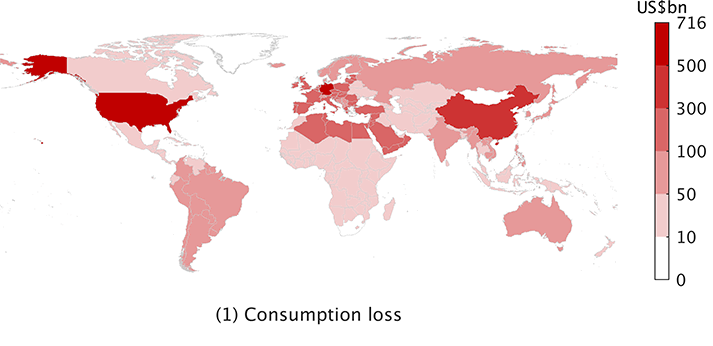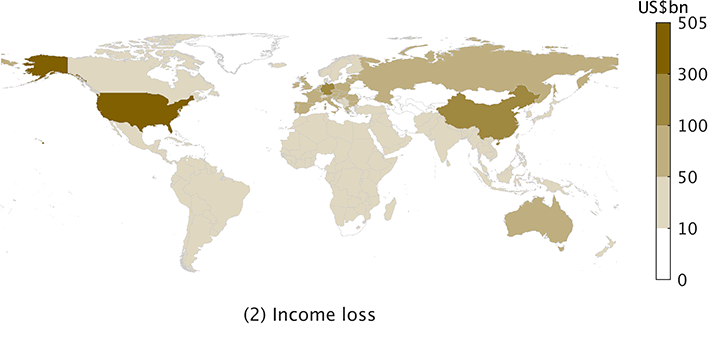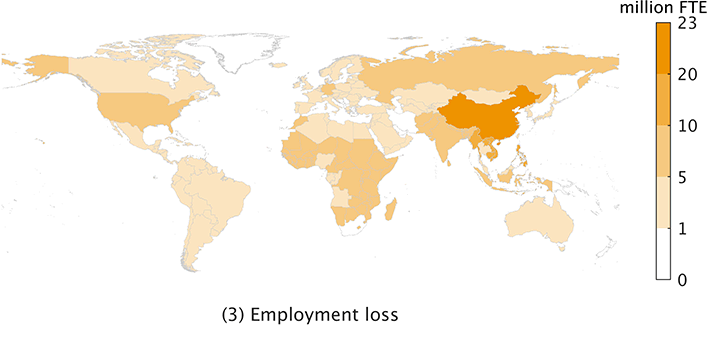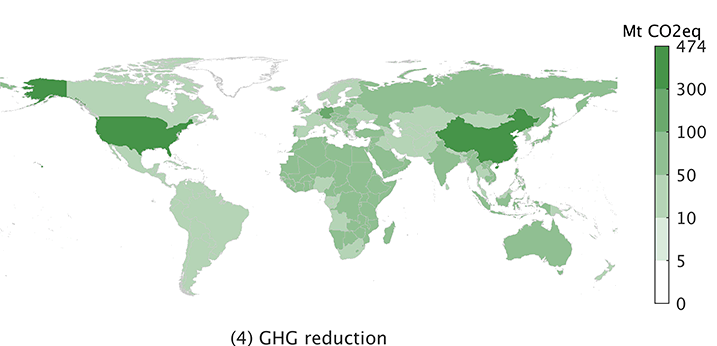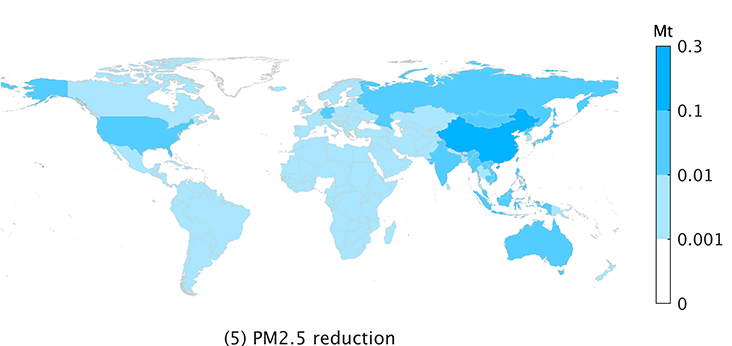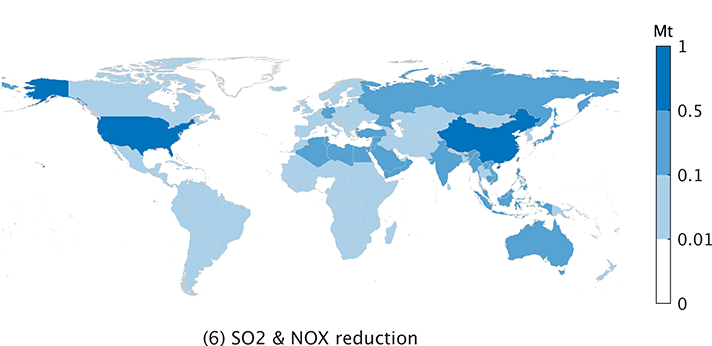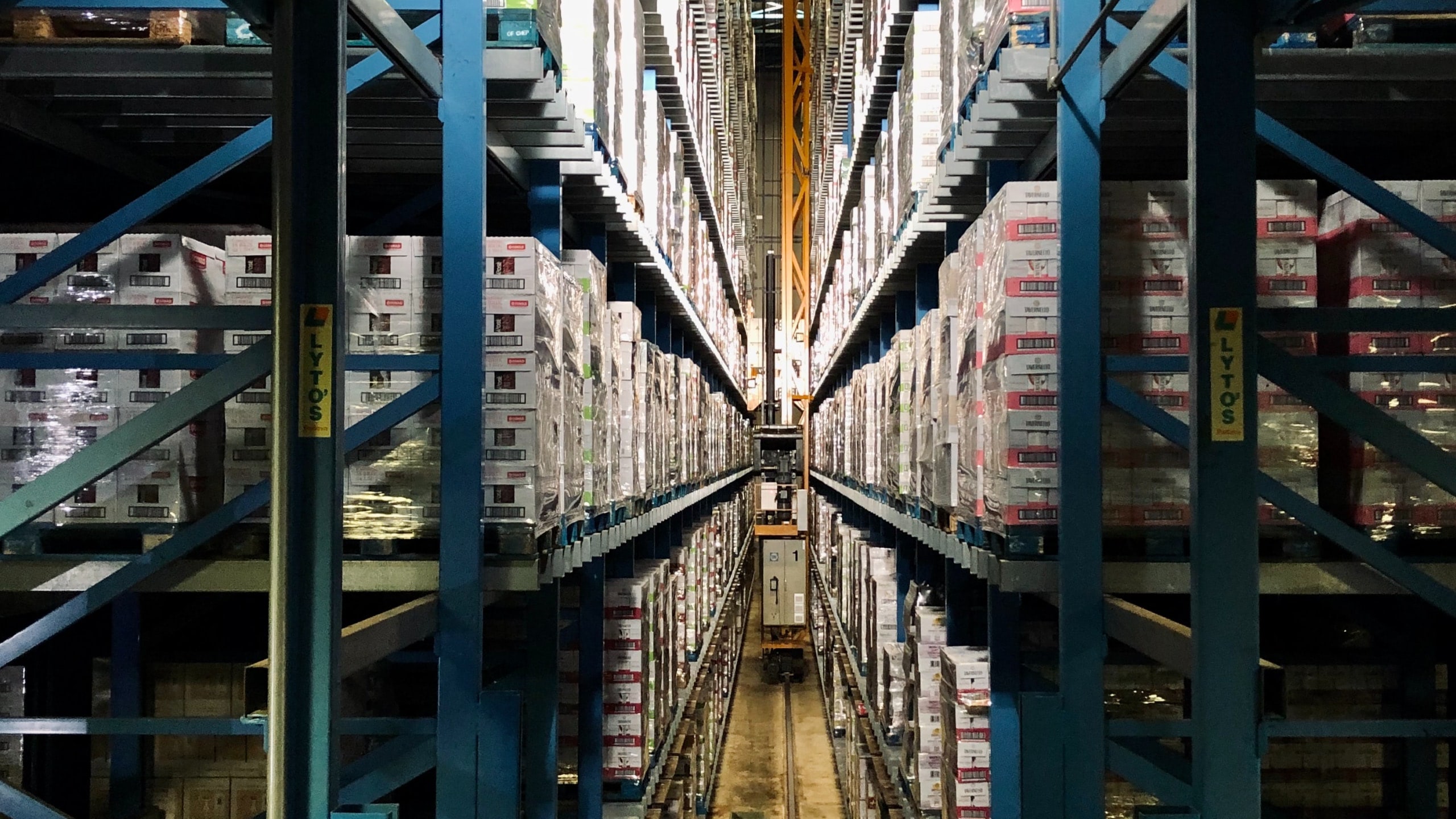
Social, environmental and economic impacts of COVID-19: a snapshot
Modelling undertaken by an international group of experts, led by the University of Sydney, offers an assessment of the global social, environmental and economic impacts of the COVID-19 pandemic at a global scale.
An analysis of the pandemic’s impact on 26 sectors in 38 aggregated world regions reveals how quickly the impact rippled through international supply chains. The study showed the world is experiencing the worst economic shock since the great depression. Consumption fell by US$3.8 trillion, with more than 147 million job losses with US$2.1 trillion loss of income from wages and salaries for an assessment done to estimate losses arising from the first-wave of the pandemic.
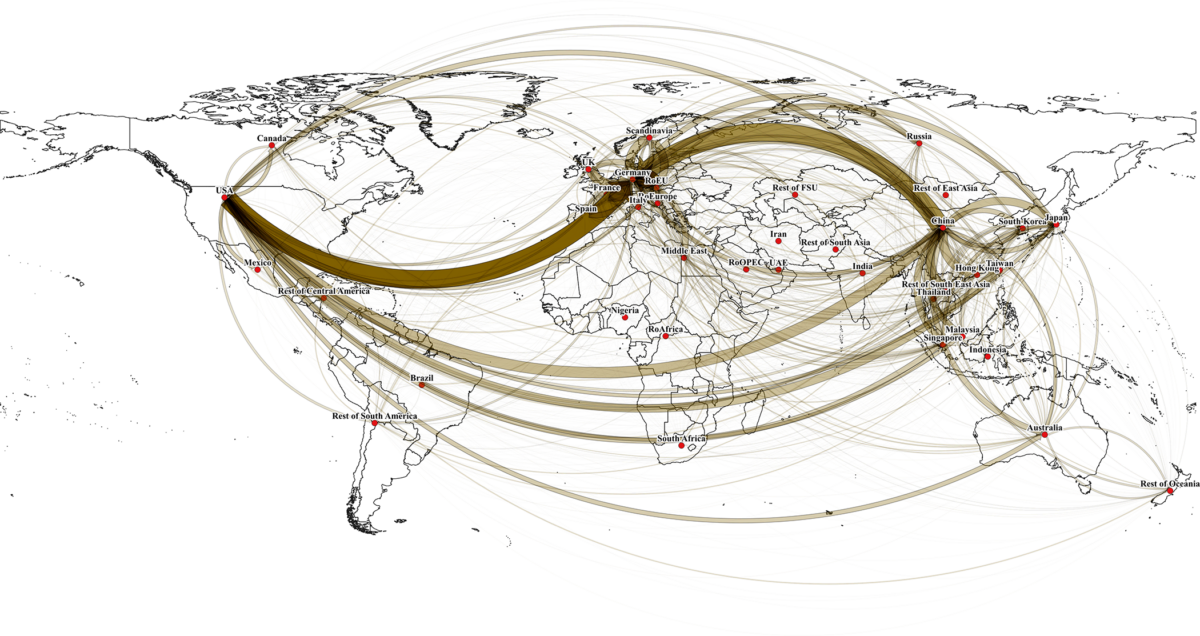
Wage and salary income losses as a consequence of trade volume reductions in international supply chains due to the global COVID-19 effects.
Lines connect ultimate origins and destinations of supply chains, both direct and multi-node. Line thickness represents trade volume lost.
Source: Global socio-economic losses and environmental gains from the Coronavirus pandemic. PLoS ONE
COVID-19’s silver lining
Has there been any silver lining? As workers and businesses embraced remote working and conferencing, travel ground to a halt. The result? Clearer skies, fresher air, and a drop in emissions at proportions never seen before – a 4.6% decrease in greenhouse gas emissions (other atmospheric emissions – PM2.5: 3.8%; SO2 & NOx: 2.9%).
A slowdown of production in key manufacturing sectors, in the production hubs of China, USA and Europe, led to disruptions in other regions and sectors. These were transport, tourism, oil extraction and refining, services, construction and trade.
Interestingly, OPEC nations lost income because of reduced oil extraction and refining activity as a result of the reductions in transport, especially aviation. These are some of many examples that the modelling showcases. Some of these impacts will continue to be felt for as long as COVID-19 is at pandemic level.
Emissions reduction not enough
So, what has COVID-19 showed us? The global economy is interconnected. Declines in production cascade through international supply-chain networks, affecting both downstream customers and upstream suppliers resulting in social, economic and environmental impacts.
COVID-19 has taught us that changes in behaviour and economic activity does result in emission reductions, however the level of reductions are still not sufficient to limit global warming to 1.5ºC – global policies and actions need to deliver a 7.6% cut in emissions every year between 2020 and 2030 to reach this target.
This is part of a series of insights related to Coronavirus (COVID-19) and its impact on business.
Photo: Arno Senoner
Arunima is a Senior Lecturer in the Integrated Sustainability Analysis (ISA) Group at the University of Sydney. Her research is interdisciplinary, and focusses on the appraisal of social, economic and environmental impacts using input-output analysis. She was part of the team that won the 2022 Eureka Prize for Excellence in Interdisciplinary Scientific Research.
Share
We believe in open and honest access to knowledge. We use a Creative Commons Attribution NoDerivatives licence for our articles and podcasts, so you can republish them for free, online or in print.
